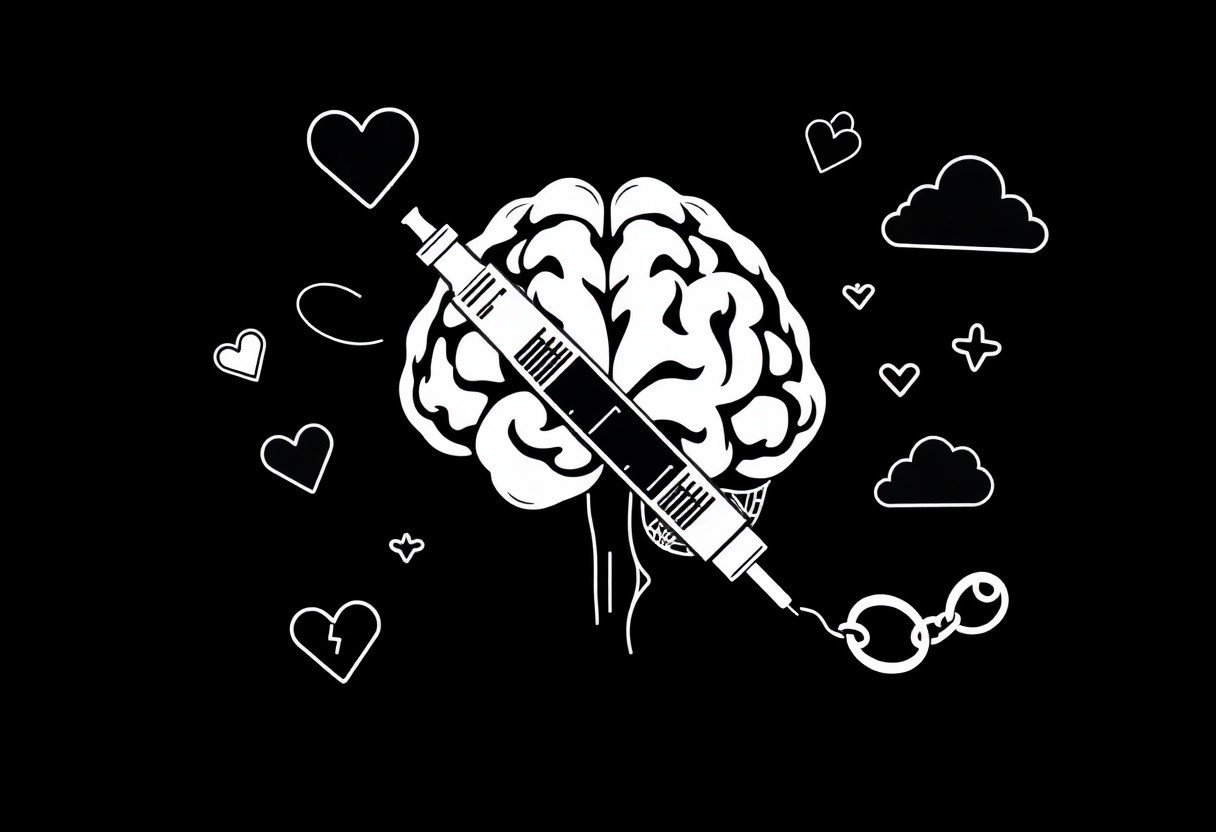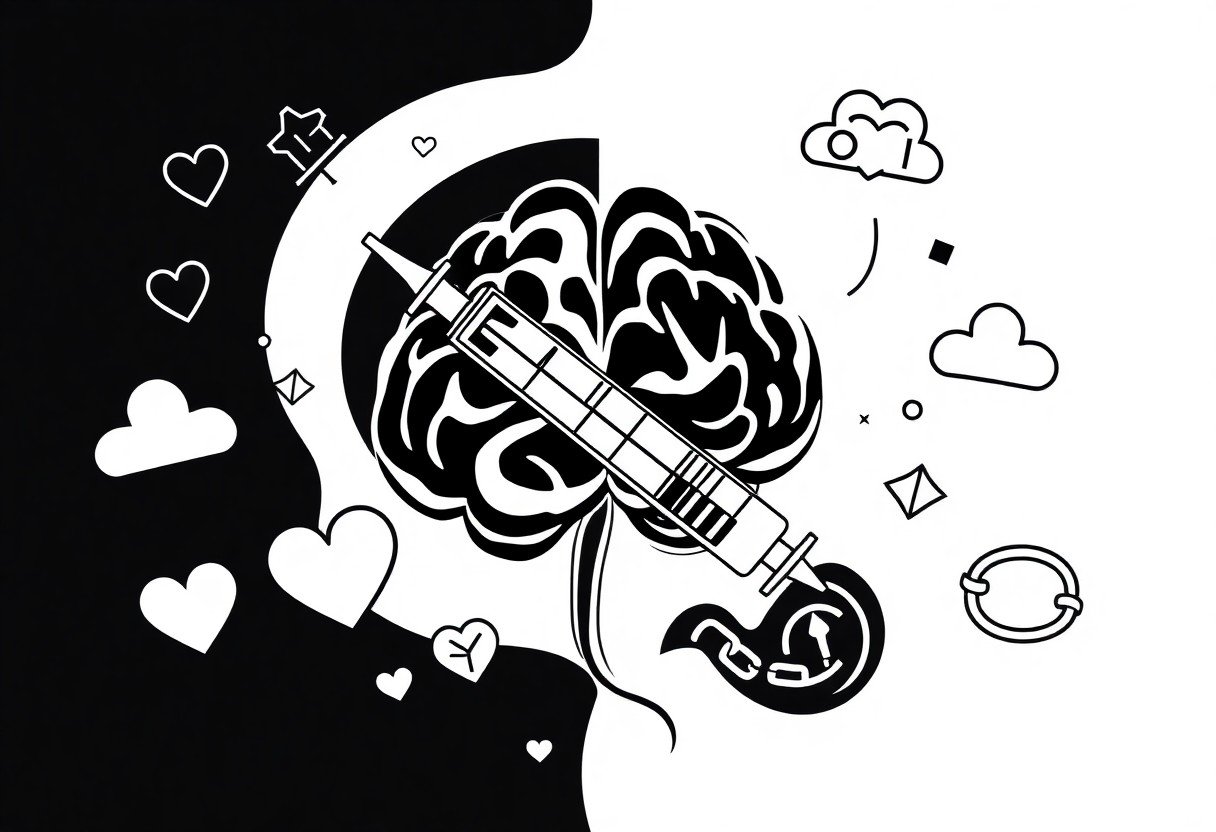Substance Use and Mental Health
Your mental health is intricately connected to your patterns of substance use. Engaging with drugs or alcohol can not only exacerbate existing mental health disorders but also increase the likelihood of developing new psychological issues. On the other hand, some individuals may turn to substances in a misguided attempt to cope with stress or mental health struggles. Understanding this complex relationship is vital for fostering better health outcomes and achieving a happier, healthier life.
Key Takeaways:
- There is a strong correlation between substance use and mental health disorders, where one can exacerbate the other.
- Individuals with mental health conditions may resort to substance use as a form of self-medication, which can lead to a cycle of dependency.
- Early intervention and integrated treatment approaches that address both substance use and mental health are effective in promoting recovery.
- Stigma surrounding both mental health and substance use can hinder individuals from seeking help, highlighting the need for awareness and education.
- Support systems, including therapy, community groups, and family involvement, play a significant role in the healing process for those struggling with these issues.
Understanding Substance Use
While substance use is often viewed through the lens of addiction and abuse, it encompasses a broader spectrum that includes behaviors affecting your mental health and social interactions. Recognizing these aspects can help you gain insights into the complex dynamics of substance use and its implications for your overall well-being.
Definition and Types of Substances
Beside the general consensus, the substances utilized in substance use can be categorized into different types based on their effects on the central nervous system. These categories include:
| Stimulants | Increase alertness and energy. |
| Depressants | Reduce anxiety and induce relaxation. |
| Hallucinogens | Alter perception and mood. |
| Opioids | Relieve pain and can lead to euphoria. |
| Alcohol | Commonly used, socially accepted depressant. |
The classification of substances highlights their varied impacts on your body and mind, which can contribute to different mental health challenges.
Prevalence of Substance Use
Below the surface, the prevalence of substance use illustrates a significant public health concern. Statistical data indicate that a substantial percentage of the population engages in regular substance use, often leading to harmful behaviors.
Definition of prevalence refers to the frequency and distribution of substance use across different demographics. It is alarming that around 20 million individuals in the United States aged 12 and older have a substance use disorder, affecting not only their physical health but also your mental well-being. Engaging in substance use can lead to detrimental consequences, such as increased anxiety, depression, and impaired judgment. Moreover, some individuals may use substances as a coping mechanism, which may initially seem beneficial but ultimately contributes to a vicious cycle of dependency and adverse mental health effects. Staying informed about the prevalence can help you recognize the challenges faced by those around you and foster understanding in addressing this complex issue.
Overview of Mental Health
Even as you navigate through life’s challenges, understanding mental health is imperative. It encompasses emotional, psychological, and social well-being, affecting how you think, feel, and act. Mental health influences your ability to handle stress, relate to others, and make choices. Acknowledging its importance can empower you to seek help when needed and promote a healthier, more balanced life.
Definition and Key Concepts
On a fundamental level, mental health refers to your emotional and psychological state. It involves how you perceive yourself and your surroundings, influencing relationships and daily functioning. Key concepts include resilience, self-esteem, and emotional regulation, all of which are integral in fostering well-being and navigating life’s complexities effectively.
Common Mental Health Disorders
Among the numerous mental health disorders, anxiety, depression, and bipolar disorder stand out as some of the most prevalent. These conditions can significantly impact your daily life and relationships, often requiring professional intervention. Awareness of these disorders is vital for recognition and seeking appropriate support.
Considering the widespread nature of mental health disorders, it’s important to address them seriously. Anxiety disorders can lead to excessive worry and fear, while depression may result in a persistent feeling of sadness and loss of interest in activities. Bipolar disorder involves extreme mood swings, impacting your interactions and overall quality of life. Being informed about these conditions can encourage you to seek help and foster a supportive environment for yourself and others.
The Interconnection Between Substance Use and Mental Health
Despite the widespread belief that substance use and mental health issues are separate problems, they are deeply intertwined. Your mental health can significantly influence your substance use, and vice versa. For many, substances are used as a coping mechanism for emotional distress, leading to a cycle where both conditions exacerbate each other. Recognizing this relationship is vital for effective treatment and recovery.
How Substance Use Affects Mental Health
Across various studies, it has been shown that substance use can contribute to a range of mental health issues, including anxiety and depression. Engaging in substance use often leads to changes in brain chemistry, affecting your mood and overall emotional stability. Additionally, withdrawal symptoms can intensify feelings of sadness or anxiety, making it even harder to maintain good mental health.
Mental Health’s Role in Substance Use
Health conditions such as depression or anxiety can often lead you to seek out substances as a means of escape. When you are struggling with mental health challenges, the temptation to use drugs or alcohol as self-medication can be overwhelming. This pattern not only places you at risk for addiction but can also worsen your existing mental health problems, creating a vicious cycle. Acknowledging your mental health struggles and addressing them may significantly reduce your likelihood of turning to substances.
Substance use disorders can develop when individuals seek to manage negative emotions stemming from their mental health conditions. The desire to cope with anxiety, trauma, or depression through alcohol or drugs may provide temporary relief but ultimately leads to worsening mental health symptoms. Over time, this reliance can become dependency, making it even harder to break free from both the addiction and the underlying mental health issues. Seeking comprehensive care that addresses both your mental health and substance use is vital for successful recovery.
Risk Factors
Now, understanding the various risk factors associated with substance use and mental health is vital for prevention and intervention. These factors can significantly increase the likelihood of developing issues. Key risk factors include:
- Genetics
- Early exposure
- Stress
- Social environment
Perceiving these risks allows you to take proactive measures in safeguarding your mental well-being.
Biological and Genetic Factors
Alongside environmental influences, biological and genetic factors play a significant role in the susceptibility to substance use and mental health disorders. Important elements include:
- Family history
- Chemical imbalances
- Brain structure
- Inflammation
Knowing your family’s health background can provide insight into your personal risks.
Environmental and Social Influences
Across your life, various environmental and social factors can significantly impact your risk for substance use and mental health challenges. These influences include your family dynamics, friends, community environment, and exposure to trauma or stress. All of these play a vital role in shaping your choices and experiences. Supportive relationships and healthy environments can act as protective factors, while exposure to negativity can lead to adverse outcomes.
Biological factors—like genetic predisposition or neurochemical imbalances—can heighten vulnerability to substance abuse. A history of addiction in your family can signal increased risk, while chronic stress or trauma from childhood can contribute to developing substance use disorders as a coping mechanism. Conversely, a supportive environment and positive social connections can alleviate these risks, promoting resilience and better mental health outcomes.
Treatment Approaches
Unlike traditional methods that focus solely on either substance use or mental health, effective treatment approaches integrate both aspects to address the complexities of your situation. This holistic strategy recognizes the interplay between substances and mental health, allowing for tailored interventions that promote recovery. By understanding the root causes, you can achieve sustainable progress and improved overall well-being.
Integrated Treatment Models
At the forefront of modern recovery approaches, integrated treatment models combine mental health therapy with substance use treatment. This synergy not only enhances your coping mechanisms but also addresses unique challenges that arise from co-occurring disorders. By fostering a comprehensive understanding of your needs, these models create a supportive environment for lasting change.
Behavioral Therapies
For anyone grappling with substance use and mental health challenges, behavioral therapies serve as effective frameworks to guide your recovery journey. These therapies focus on modifying harmful behaviors and developing healthier coping strategies. By participating in behavioral therapy, you can gain insights into your patterns, learn to manage triggers, and build resilience in the face of stressors.
But not all behavioral therapies are the same, and their effectiveness can vary based on individual circumstances. Techniques such as Cognitive Behavioral Therapy (CBT) help you identify negative thought patterns that contribute to substance use and mental health issues. Group therapy provides a sense of community and shared experiences, reinforcing that you are not alone in your struggles. Importantly, by actively participating in these therapies, you can develop the skills necessary to confront challenges, leading to a more fulfilling and stable life.

Prevention Strategies
For effective prevention of substance use disorders and mental health issues, a multifaceted approach is vital. You can engage in a variety of strategies, including community support, education, and awareness programs. These methods not only promote healthy behaviors but also create an environment where individuals feel empowered to make informed choices about their mental well-being and substance use.
Community-Based Initiatives
By fostering a network of community support, you can help create safe spaces that encourage open discussions about substance use and mental health. These initiatives can include support groups, recreational activities, and outreach programs aimed at connecting individuals with local resources, which ultimately strengthens community bonds and enhances mental well-being.
Education and Awareness Programs
To effectively combat the stigma surrounding mental health and substance use, you should participate in targeted education and awareness programs. These initiatives equip you with the information needed to recognize signs of substance misuse and mental health struggles, enabling you to advocate for yourself and others.
Indeed, education and awareness programs play a significant role in promoting understanding and compassion regarding substance use and mental health issues. By providing you with knowledge about the risks associated with substance use and tools to address mental health challenges, these programs can empower you to make safe and informed decisions. They also aim to break the stigma and dispel myths that often surround these topics, fostering a more accepting environment where you feel secure seeking help. Engaging in such initiatives can lead to positive community changes and better mental health outcomes for all.
Summing up
Considering all points, it is crucial for you to understand the complex relationship between substance use and mental health. Both aspects can influence each other, leading to a cycle of worsening symptoms and dependence. By recognizing the signs and seeking help early, you can empower yourself to make informed decisions regarding your well-being. Prioritizing your mental health and being aware of substance use can pave the way for healthier coping strategies and an improved quality of life.
FAQ
Q: How does substance use affect mental health?
A: Substance use can significantly impact mental health by altering brain chemistry, which may lead to or exacerbate conditions such as anxiety, depression, and schizophrenia. For example, alcohol and certain drugs may initially provide relief from symptoms, but prolonged use often leads to increased feelings of anxiety or depression when not under the influence. Additionally, the stress and negative consequences associated with substance use can further deteriorate mental health, creating a challenging cycle.
Q: Are individuals with existing mental health disorders more likely to use substances?
A: Yes, individuals with mental health disorders, such as depression, anxiety, or PTSD, often turn to substances as a coping mechanism. This can lead to a dual diagnosis, where a person experiences both a mental health disorder and a substance use disorder. The interplay between these conditions can make treatment more complex, as each disorder can influence the course and outcome of the other.
Q: What are the signs that someone may be misusing substances and experiencing mental health issues?
A: Signs of substance misuse coupled with mental health issues may include significant changes in behavior or mood, withdrawal from friends and family, decreased performance at work or school, neglecting responsibilities, and drastic shifts in energy levels or sleeping patterns. Additionally, unexplained physical symptoms, such as weight loss or deterioration in appearance, may also be indicators. If these signs are observed, it is important to seek professional help.
Q: What treatments are available for those struggling with both substance use and mental health issues?
A: Integrated treatment is often most effective for individuals facing both substance use and mental health challenges. This approach includes therapy options such as cognitive behavioral therapy (CBT), medication management, and support groups. Treatment should be personalized based on the individual’s specific needs and circumstances and may involve collaboration between mental health professionals, addiction specialists, and medical providers.
Q: Can recovery from substance use lead to improvements in mental health?
A: Yes, individuals who recover from substance use can often experience significant improvements in their mental health. When individuals stop using substances, they may find that their anxiety and depressive symptoms diminish, their quality of life improves, and they develop healthier coping mechanisms. However, it is important to approach recovery holistically, addressing both substance use and any underlying mental health conditions to facilitate long-term wellness.







